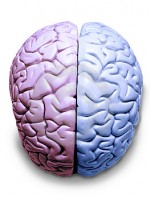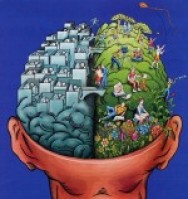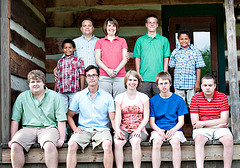THE COLLABORATIVE LEARNING PROCESS
The Temperament Stage
2-4 Years Old
Foundation:
Determining style of relationship
Discovering personality and temperament styles
Implementing correct interaction style
Parental Role:
Emotional Collaboration
Extending mutual respect
Working with, not doing to
Resources:
The Highly Sensitive Child, by Elaine N. Aron, Ph.D.
The Explosive Child, by Ross W. Greene, Ph.D.
Raising Your Spirited Child, by Mary Sheedy Kurcinka
Kids, Parents and Power Struggles, by Mary Sheedy Kurcinka
How to Talk So Kids Will Listen & Listen So Kids Will Talk, byAdele Faber/Elaine Mazlish
THE COLLABORATIVE LEARNING PROCESS
The Learning Style Discovery Stage
5-7 Years Old
(60 them/30 support/10 gentle nudging)
Foundation:
Play is their work
Observe what resources, tools, and toys they are naturally drawn to
Honor and give value to what they are interested in and how they go about learning more
Parental Role:
Add fuel to an interest
Expand the interest
Bring in other areas similar to the interest
Learning comes from child’s own initiation so as not to inhibit learning style disclosure
Role Implementation:
“Strewing” was not utilized; not collaborative
As I found resources, I let them know my discovery and offering in connection to interest
Family trips to bookstores, museums, and zoos
Consistent trips to library
Field trips through homeschool group(s)
Family trips seeing local sites and attractions
Resources:
Mostly for me to release myself from world’s educational value system
Create new educational value system that honors all styles of learning and timeframes
For the children, mainly living books, toys, and manipulative-based learning tools
THE COLLABORATIVE LEARNING PROCESS
The Exploration Stage
8-10 Years Old
(60 them/30 support/10 by invitation)
Foundation:
Most fun stage for me!
More willing to move off preferred areas to explore other arenas of potentiality
Like sampling from a buffet table, but bringing it back to preferred table to partake
Parental Role:
Add fuel to an interest
Expand the interest
Bring in other areas similar to the interest
Facilitate requests
Open up world and marry it back to how they best learn
knowledge collaboration
(short teaching moments, laying foundation for areas that would be important to child)
Role Implementation:
Share offerings of classes from homeschool groups, museums, zoos, and community
(4-H, Girl Scouts, Cub Scouts, art camp, etc.)
Made technological resources much more available
Brought in world resource ideas through magazines much more
Friends incorporated more
Resources:
Living books
More open-ended educational tools and activity books
A few small scale workbooks and practice books
Computer and software
Magazines, comic books and other visual reading material
THE COLLABORATIVE LEARNING PROCESS
The Collaborative Learning Stage
11-13 Years Old
(60 them/30 I steer goals/10 process-shift)
Foundation:
Transitional stage
Sharing valuable insights about adult living
Supporting the process in working toward their unique futures
More formal discussions and frameworks take place
Help child own and take responsibility for their goal-oriented learning lives
Assist children in creating goals and structuring learning
Parental Role:
Add fuel to an interest
Expand the interest
Bring in other areas similar to the interest
Facilitate requests
Open up world and marry it back to how they best learn
learning collaboration
(meetings to discuss formal goal-based learning)
Role Implementation:
Church youth program offerings
Summer camps
Leadership opportunities
Speaking opportunities
Service opportunities
Resources
Formal resources and tools
A few textbooks
(All specific to learning style and self implementation)
THE COLLABORATIVE LEARNING PROCESS
The Gift Focus Stage
14-16 Years Old
(60 them/30 combo goals/10 counsel needs)
Foundation:
Another amazing stage for me!
A time of balance (work, play, passion)
Pursues specific interest with passion and purpose
Spends long periods of time independently in focused pursuit
Parental Role:
Facilitate requests
Take the lead from child for passion goals
Suggest relevant supplemental and/or supportive topics
Be a resource coach
Role Implementation:
Church youth program offerings
(Summer camps, leadership opportunities, speaking opportunities, service opportunities)
Social opportunities
Formal classroom opportunities
Resources:
Adult-level interest-specific living books
Career level formal resources and tools
A few textbooks and teaching tools and resources
(All specific to learning style and self implementation)
THE COLLABORATIVE LEARNING PROCESS
The Transitional Stage
17-19 Years Old
(60 them/30 them goals/10 counsel support)
Foundation:
A transition that is seamless, hesitant, or resistant
Moving from home and dependency to community and independence
Full adult schedule
(work, volunteer, college, entrepreneurial, mentors, travel)
Parental Role:
Support needs
Give counsel
Mindful planning and accountability
Formal meetings and discussions
Role Implementation:
Church youth program offerings
(Summer camps, leadership opportunities, speaking opportunities, service opportunities)
Social opportunities
Formal classroom opportunities
Resources:
Adult-level interest-specific living books
Career level formal resources and tools
Preparatory tools
Mentors
For a brief summary, go here.
For a narrative explanation, go here.
If you benefited from this content, please consider supporting me by buying access to all of my premium content for a one-time fee of $15 found here. This will even include a 50% off e-mail link toward a copy of my popular The Right Side of Normal e-book (regularly $11.95)!






Pingback: There are no Educational Emergencies | The Right Side of Normal